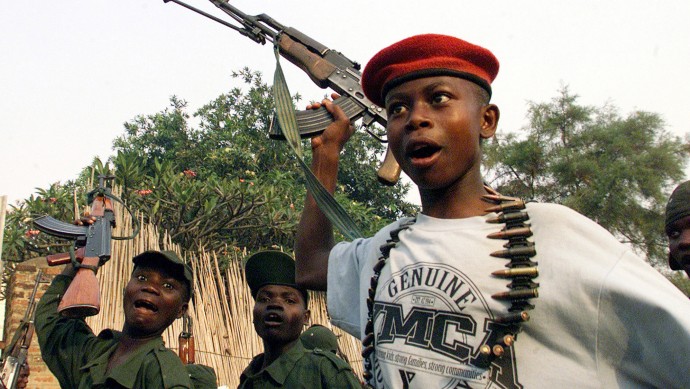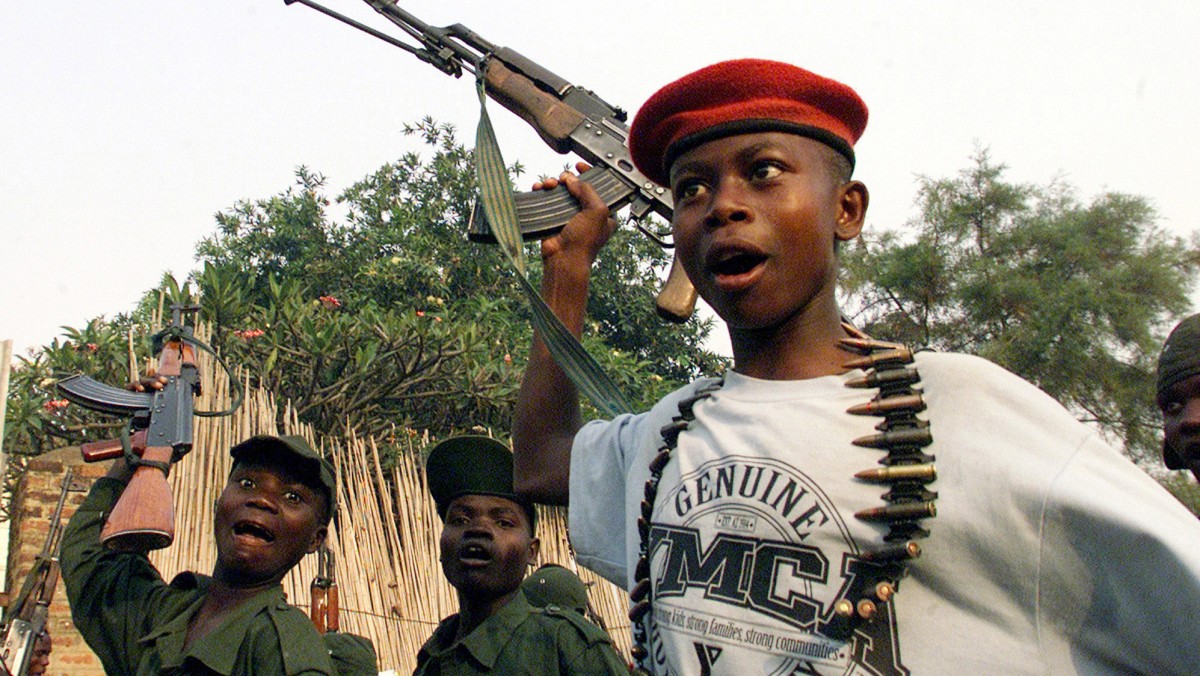
(MintPress) – The State Department recently released its annual Trafficking in Persons Report, listing governments in seven countries that continue to recruit child soldiers – nearly all of which receive military financing from the United States despite provisions in place against it.
The Child Soldiers Prevention Act of 2008 (CSPA) prohibits the U.S. government from providing any form of military assistance to governments that recruit child soldiers under the age of 18 either as active soldiers or for supportive roles as cooks, messengers or sex slaves.
However, millions of U.S. taxpayer dollars continue to flow into countries that support the use of child soldiers every year in the form of international military education and training (IMET), foreign military financing (FMF) and section 1206 assistance. In some cases, commercial weapons are sold directly to the foreign governments.
Waiving away human rights
Out of seven countries listed, Burma remains the only nation that has not received any form of military assistance from the United States under the Obama administration. However, recent steps taken to improve democracy in the country have led to a loosening of international sanctions and may open a door to future military aid.
While Somalia also does not receive any direct military assistance from the United States, it does benefit through military peacekeeping missions including the U.S.-funded multinational African Union Mission in Somalia (AMISOM) and the National Security Force of the Transitional Federal Government (TFG). The TFG has been known to use child soldiers to staff checkpoints.
Since South Sudan gained independence in 2011, Sudan has also been removed from a list of 70 some countries expected to receive military assistance from the United States in 2013. However, Sudan does still benefit from military support in the form of peacekeeping missions similar to Somalia.
Thanks to a series of presidential national interest waivers, the remaining five countries – Libya, Democratic Republic of the Congo, South Sudan, Sudan and Yemen – will receive nearly $200 million in combined U.S. military assistance in 2012, more than $22 million of which can be withheld under the CSPA.
The Obama administration has approved several waivers over the past four years, allowing military aid to flow into countries using child soldiers as well as other regimes exhibiting human rights violations against its citizens, including a waiver for a weapons shipment to enter Egypt earlier this year.
Last fall, President Barack Obama signed a presidential memorandum stating, “I hereby determine that it is in the national interest of the United States to waive the application of the prohibition in section 404(a) of the CSPA with respect to Yemen; and further determine that it is in the national interest of the United States to waive in part the application of the prohibition in section 404(a) of the CSPA with respect to the Democratic Republic of the Congo.”
In the past two years since the CSPA became law, the Obama administration has withheld money from a country supporting child soldiers just once when it kept $2.7 million in foreign military financing from entering Congo.
Jo Becker, a child rights advocate at Human Rights Watch believes these waivers are detrimental to ending the use of child soldiers. “Countries that keep using child soldiers aren’t going to get serious about ending the practice until they see the U.S. is serious about withholding the money,” said Becker. “These military aid waivers show a lack of leadership and a disregard for U.S. law.”
President Obama has roughly three months to determine whether he will allow the CSPA’s prohibitions on military aid to go into effect or whether he will grant waivers to any of the seven countries on this year’s list. Libya, DRC, South Sudan, and Yemen are all slated to receive IMET as well as FMF in 2013 provided that waivers are signed.
“He needs to use the strategic leverage the law provides to send a strong message that Washington won’t tolerate the use of child soldiers by its allies,” said Becker.
Cracking down on the use of child soldiers
For the first time in its ten year history, the International Criminal Court (ICC) prosecuted its first criminal this year, convicting Congolese warlord Thomas Lubanga for enlisting or conscripting child soldiers in the 2002-2003 conflict in eastern Democratic Republic of Congo.
One month later in April 2012, the U.N.-backed Special Court for Sierra Leone in The Hague convicted former Liberian President Charles Taylor of conscripting, enlisting and using child soldiers under the age of 15 among 11 counts of war crimes and crimes against humanity.
While the prosecution of Lubanga and Taylor are important steps for the international justice system, several other warlords remain at large while child soldiers continue to be recruited each year. Former rebel commander, Bosco Ntaganda, has been living openly in DRC for several years despite a 2006 ICC arrest warrant for his recruitment and use of child soldiers.
Ntaganda was even offered a position as army general of the Armed Forces of the Democratic Republic of Congo in 2005, which he declined. President Kabila called for Ntaganda’s arrest earlier this year, but he remains free.
Infamous warlord Joseph Kony, leader of the Lord’s Resistance Army (LRA), a Ugandan guerrilla group believed to have recruited as many as 100,000 child soldiers in its history, is also believed to be hiding in DRC. The ICC has been after Kony’s arrest since 2005 for crimes against humanity.
The advocacy organization, Invisible Children, launched a controversial campaign in March 2012, which utilized social media as a method to mobilize people to pressure the international community to step up efforts to capture and prosecute Kony in hopes of ending the use of child soldiers by the LRA.
Yet the path to ending the use of child soldiers goes far beyond capturing warlords like Kony. Countries that use child soldiers, or harbor criminals that do, will not be serious about cracking down on these issues unless their financial backers are too.
“The Obama administration has been unwilling to make even small cuts to military assistance to governments exploiting children as soldiers,” Becker said. “Children are paying the price for its poor leadership.”
The State Department has requested more than $22 million in IMET and FMF to governments that use child soldiers in Fiscal Year 2013, pending approval from the president.


